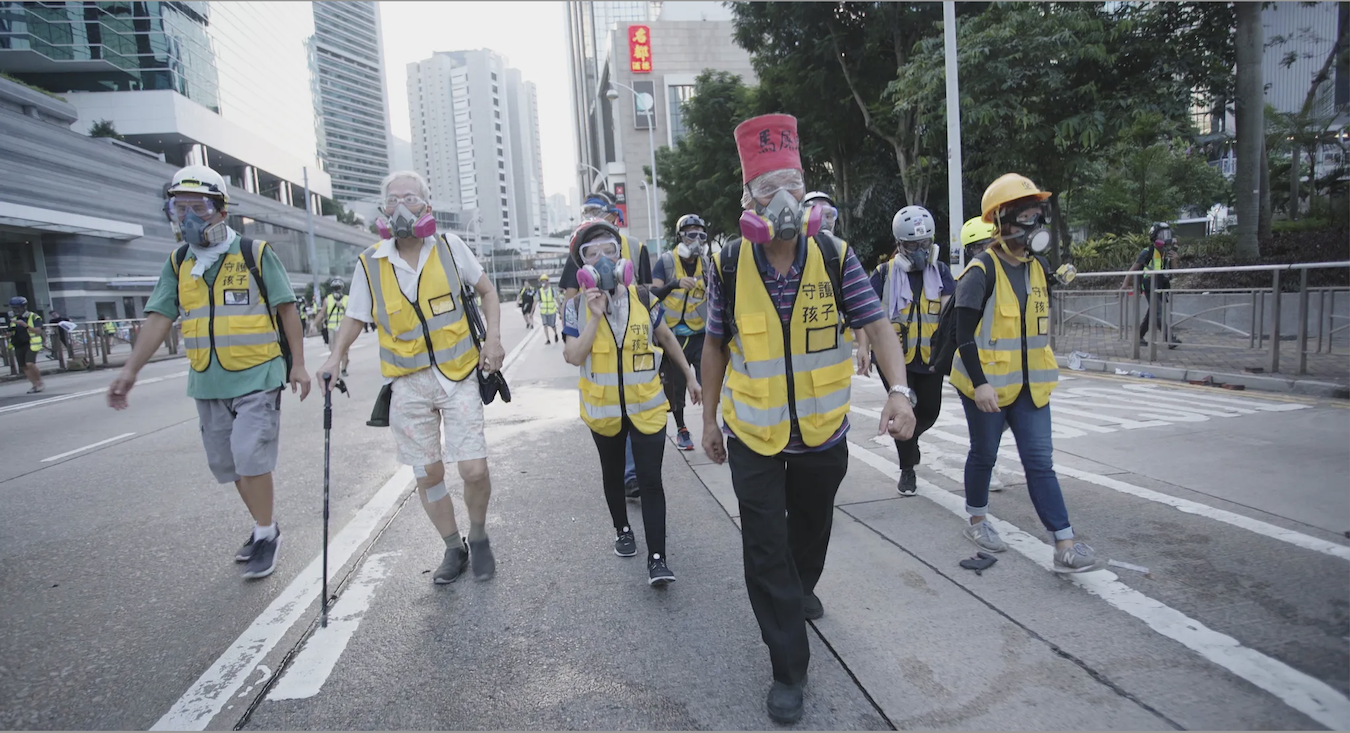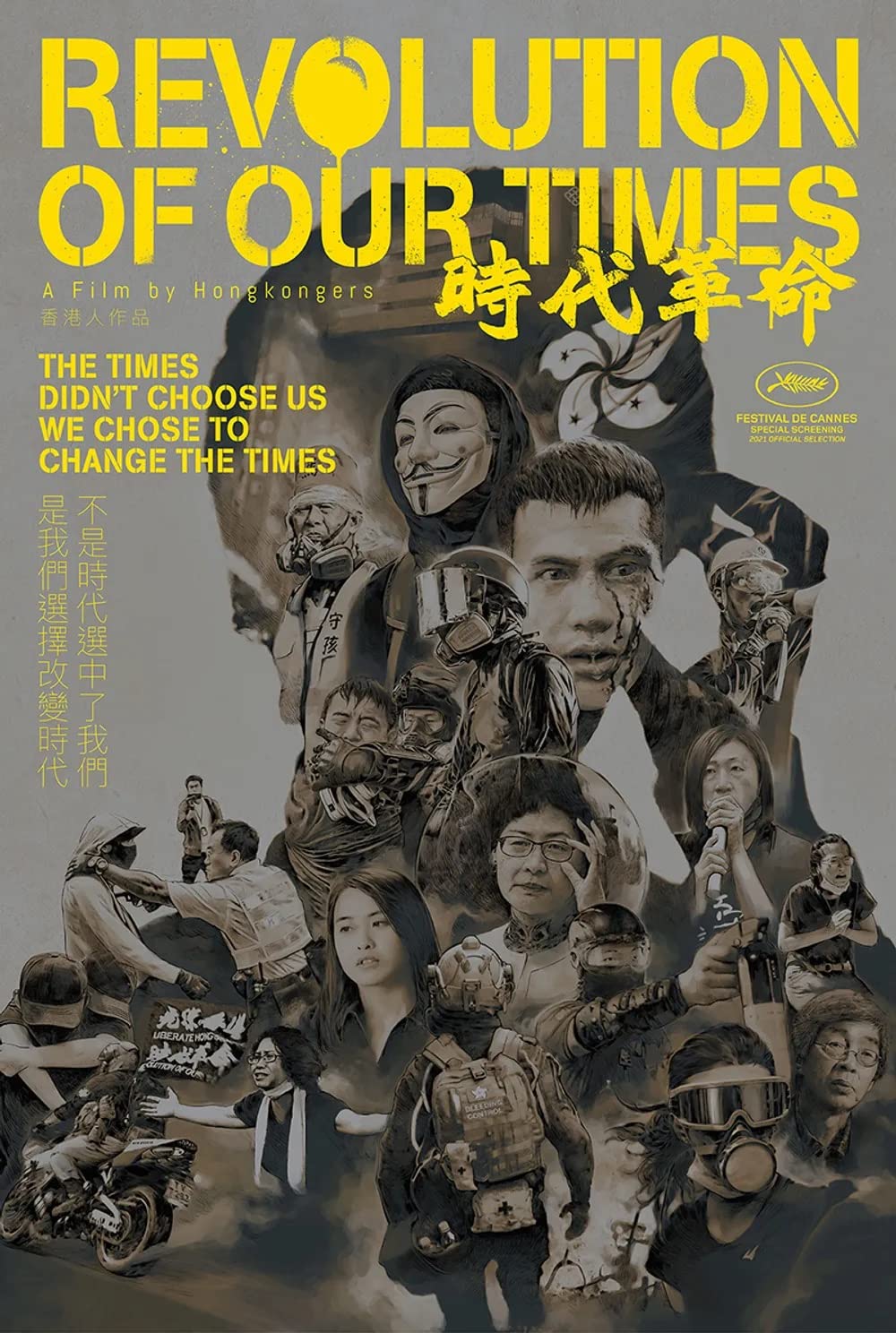by Brian Hioe
語言:
English
Photo Credit: Revolution of Our Times
REVOLUTION OF OUR TIMES is not a particularly artful film, if it is often a moving one. And it is one that is highly successful on these merits. The Hong Kong protest documentary by Kiwi Chow made its debut at the 2021 Cannes Film Festival through a secretly arranged screening and started a theatrical run in Taiwan on February 25th, having won Best Documentary at the Golden Horse Film Festival.
In particular, the film documents seven different groups of protestors through the major events of the 2019 Hong Kong protests. This starts from the massive June demonstrations against the extradition bill originally proposed by the Hong Kong government, through the climactic siege of Hong Kong Polytechnic.
It is an achievement of Chow’s that he is able to weave together the narratives of so many groups of protestors into a single, cohesive narrative framed by history. This is done while still managing to depict the individuality of the many protesters that appear in the film, as well as their distinctiveness. In this, Chow draws on footage from other filmmakers and livestream footage of key moments during the protest. Chow’s range of interview subjects is an element that adds strength to the film, as Chow sometimes is able to feature multiple perspectives of the same event, from different ground-level viewpoints.
Indeed, in many ways, the Revolution of Our Times seems to aim to provide a general overview of the 2019 protests. This may particularly be with an American audience in mind, Chow’s camera often dwelling on the American flag, and the film concludes with speeches by US elected officials about the protests. Never does the film dwell on any single moment of the protests, whereas Taking Back the Legislature and Inside the Red Brick Wall zoomed in on the legislative occupation and siege of Hong Kong Polytechnic.

Film still
Some of the technical merits of Revolution of Our Times are worth remarking on. The footage of drone footage in the film is particularly well-executed, for example. Drone footage is skillfully used to convey how massive the protests were at their peak, as well as to show how the “Be Water” tactics used by protestors of dispersing whenever police charge does, in fact, resemble flowing water from above.
To this extent, given its aim to provide an overview of the movement rather than to magnify any specific moment, Revolution of Our Times provides some interesting sociological insight into the protests.
In one revealing moment, a protester reflects on how Hong Kong police are mostly working class. In another, a demonstrator suggests that the current generation of Hong Kong young people may be used to online coordination with strangers through online games, hence the use of this sort of anonymous participation during protests. Likewise, Chow shows fascinating scenes of protest command centers in action. And the documentary’s human drama largely comes from how a group of protestors grows closer together and becomes a makeshift family, filling the gap for those that have been kicked out of their families over their political views.
If the film has a weakness that undercuts it, it is that it can be overly didactic. There is no need to dramatize any of the events seen in the film. Instead, as with many other Hong Kong protest documentaries, one can instead allow drama to naturally emerge from the film.
But this is not the case with Revolution of Our Times. One glaring element that contributes to this issue is the film’s soundtrack, which sounds rather like a B-movie action film soundtrack, and is always telling readers how to feel about scenes in the film, vesting the film sometimes with a melodramatic undertone. As a result, Revolution of Our Times compares less strongly to other protest documentaries such as Taking Back the Legislature, Inside the Red Brick Wall, or Blue Island, works with decidedly more aesthetic merit.
Nevertheless, Revolution of Our Times is a gripping film, and it provides a lucid panorama into the 2019 protests that can be educational for those unfamiliar with what took place. Revolution of Our Times is still among the weaker documentaries that captured the 2019 protests, yet the results can still be quite stirring.



